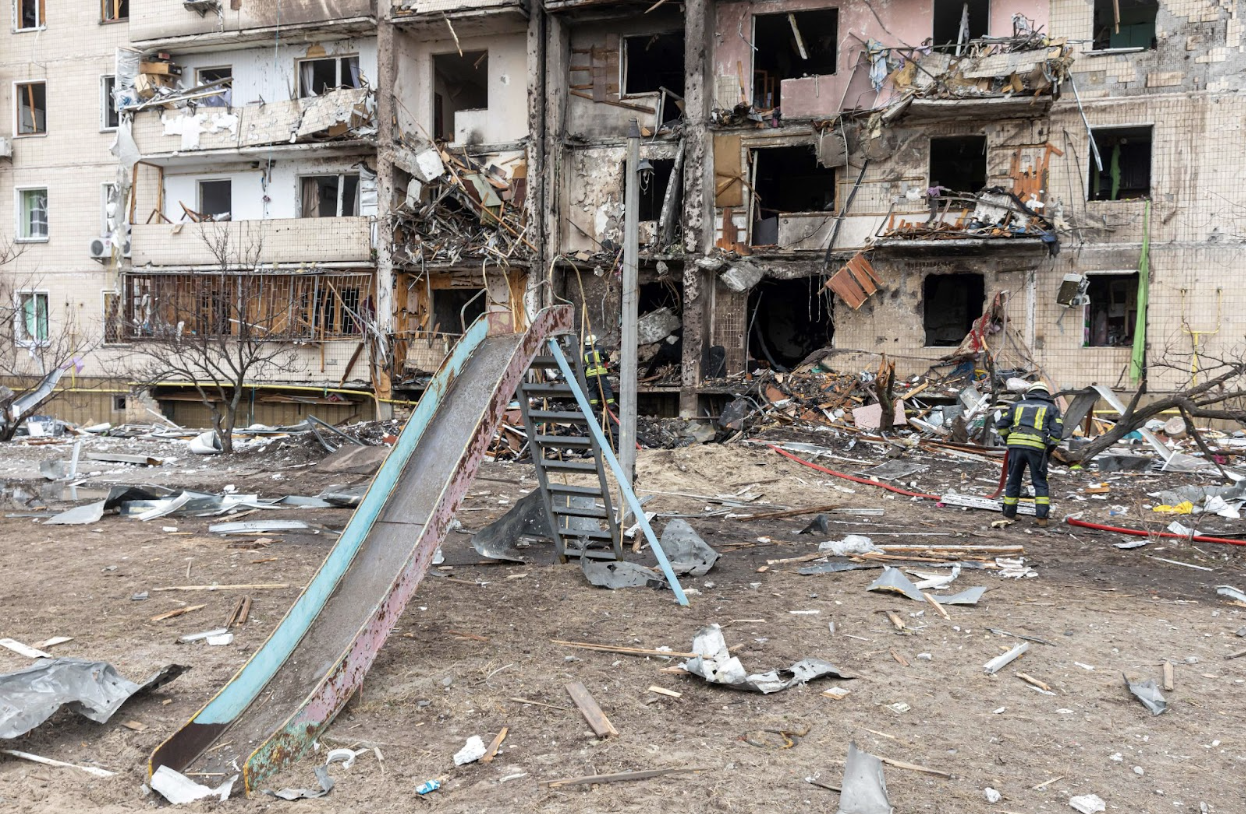Ukraine/Russia: Renewed call for peace as human rights crisis intensifies
Photo: Drop of Light (Shutterstock)
4 March 2022: The Russian authorities must immediately end their senseless war in Ukraine, PEN International said today, as the human rights and humanitarian crisis in the country deepens.
Since Russian forces invaded Ukraine on 24 February, 331 civilians have been killed and 675 injured according to the United Nations Human Rights Office in Ukraine, with the real death toll likely to be much higher. On 1 March, Ukrainian camera operator Yevhenii Sakun became the first journalist to be killed during the invasion, by a targeted missile strike on a television tower in Kyiv. Access to vital services has been severely disrupted, with health supplies running out as health facilities and health workers are reportedly targeted. Indiscriminate attacks on civilian areas and infrastructure have prompted the prosecutor of the International Criminal Court (ICC) to open an investigation into ‘allegations of war crimes, crimes against humanity or genocide’ at the behest of 39 ICC State Parties. According to the United Nations High Commissioner for Refugees (UNHCR), the war has forced one million people to flee the country in just seven days, while countless others have been internally displaced. PEN International condemns reports of abuse and discrimination against third country nationals who are also attempting to flee the war in Ukraine, and urges to guarantee safe passage for all irrespective of nationality and ethnicity.
Meanwhile in Russia, independent voices have come under sustained attack. Over 8100 people have reportedly been detained at anti-war protests across the country, with journalists facing harassment and arbitrary detention. Independent media outlets – including Dozhd TV and Ekho Moskvy (Echo of Moscow) – have been blocked. On 4 March the Russian Parliament adopted amendments to the criminal code that would impose prison terms of up to 15 years for anyone found guilty of disseminating ‘fake’ information about the armed forces. According to reports, President Putin already signed the amendments into law, meaning the bill goes into effect tomorrow. The websites of the BBC, Voice of America, Radio Free Europe/Radio Liberty, Deutsche Welle and other media outlets, as well as Facebook and Twitter, have been blocked. PEN International urges the Russian authorities to uphold the rights to freedom of expression, information, and peaceful assembly, including by allowing the media to freely report on the invasion of Ukraine.
Additional information
PEN International – whose members pledge themselves to do their utmost to dispel all hatreds and to champion the ideal of one humanity living in peace and equality– and scores of PEN Centres around the world have repeatedly called for an end to the war in Ukraine.
On 27 February, PEN International published a letter signed by over 1000 writers and artists, including Nobel laureates Sveltana Alexievitch, Orhan Pamuk, Maria Ressa, and Olga Tokarczuk, condemning Russia’s invasion of Ukraine and calling for an immediate end to the bloodshed.
On 1 March, the organisation joined members of the Council of Europe’s Platform to Promote the Protection of Journalism and Safety of Journalists in calling for the protection of journalists covering the invasion, and for the provision of urgent and practical assistance to reporters on the ground.
Together with PEN Ukraine, the Ukrainian Institute, and the Ukrainian Institute London, PEN International launched Dialogues on War, a series of conversations with Ukrainian and foreign intellectuals. The third dialogue, between Victoria Amelina, award-winning Ukrainian writer and founder of the New York Literary Festival in the Donetsk region, and Sofi Oksanen, award-winning Finnish writer, will take place on 5 March at 2pm GMT. Previous dialogues can be accessed here.
Statements by PEN Ukraine are available here.
For further details contact Aurélia Dondo at PEN International, Koops Mill, 162-164 Abbey Street, London, SE1 2AN, UK Tel: +44 (0) 20 7405 0338 Fax +44 (0) 20 7405 0339 e-mail: [email protected]

